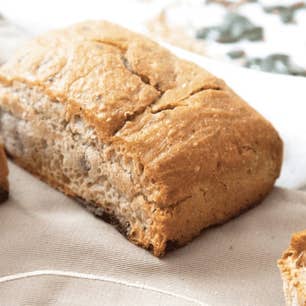Gluten Free Bread in Hong Kong
In recent years, gluten-free bread has transitioned from a niche dietary alternative to a mainstream food choice. This surge in popularity is not only due to the growing awareness of gluten intolerance and celiac disease but also because of the increasing number of people opting for healthier lifestyles.
What Makes Gluten-Free Bread Unique?
Gluten-free bread is made from alternative flours such as almond, rice, coconut, and buckwheat, instead of traditional wheat flour. These ingredients not only eliminate gluten but also introduce a variety of textures and flavors, making gluten-free bread a unique culinary experience.
Gluten-free bread is not just beneficial for those with gluten sensitivity. It often contains higher fiber and is a good source of essential vitamins and minerals. These attributes make it an excellent choice for anyone looking to maintain a balanced and nutritious diet.
The world of gluten-free bread offers an array of choices, from classic loaves to flavored breads infused with herbs and spices. This variety caters to a wide range of taste preferences, ensuring that everyone can enjoy the goodness of bread without any gluten concerns.
The Art of Gluten-Free Baking
Gluten-free baking is an art that combines traditional baking techniques with innovative approaches. The result is bread that not only meets dietary needs but also delights the senses. Whether it's a crusty baguette or a soft sandwich loaf, gluten-free bread can be just as satisfying as its wheat-based counterpart.
Triticum stands out as a pioneering company in the world of gluten-free bread. Embracing the challenge of gluten-free baking, Triticum has likely developed innovative methods to create bread that rivals traditional wheat-based products in both taste and texture. By using a blend of alternative flours and natural ingredients, their gluten-free breads are designed to cater not only to those with gluten sensitivities but also to health-conscious consumers seeking nutritious options.
Health and Nutritional Benefits
The primary benefit of gluten-free bread is its suitability for individuals with gluten intolerance or celiac disease. Gluten, a protein found in wheat, barley, and rye, can cause adverse health effects in these individuals, ranging from digestive issues to severe allergic reactions. Gluten-free bread provides a safe alternative, allowing them to enjoy bread without health risks.
Alternative flours used in gluten-free bread are often rich in vitamins and minerals. For instance, almond flour is a good source of vitamin E and magnesium, while buckwheat flour is high in B vitamins and iron. This makes gluten-free bread not just a gluten-free option, but also a nutrient-dense food choice.
Some gluten-free breads are lower in carbohydrates, particularly those made with nut-based or seed-based flours. This can be beneficial for individuals following a low-carb or ketogenic diet.






